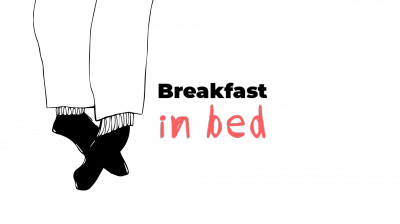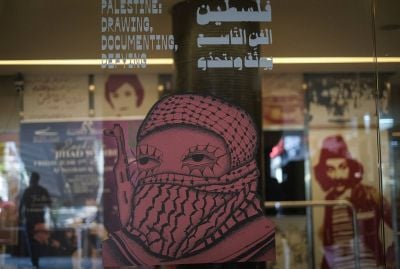
Lebanon's Fête de la Musique features a wide range of bands. (Credit: Jaimee Lee Haddad)
Every year on June 21, Lebanon transforms into a vibrant open-air concert venue for the Fête de la Musique, a tradition that has increasingly spread throughout the country.
Initiated in 1981 by Jack Lang, then French Minister of Culture, and Maurice Fleuret, Director of Music and Dance, the Fête de la Musique embraces the idea that "music should be everywhere and concerts nowhere."
This philosophy proves true in Lebanon, where the festival kicked off on June 21, 1982. Within a decade, it had expanded to 85 countries, and today, over 120 nations participate in this worldwide celebration of music.
Since its introduction in 2000, the event has secured a special place in the hearts of the Lebanese, becoming a cherished annual occurrence, especially during times of adversity.
Concerns that this year's Fête de la Musique might be canceled were quickly dispelled by the Institut français du Liban (IFL). Sabine Sciortino, the director and advisor for cooperation and cultural action at IFL, reassured L'Orient-Le Jour, stating, "There is no paradox in organizing it in a context of conflict; on the contrary, it offers an essential breathing space."
"Every time we organize a festive event, we consider the lasting impact it will have and how it can help develop this sector," she explained.
Sciortino emphasized the significance of this support, especially at a time when many international donors are aiding Lebanon in critical sectors. However, these donors often overlook the cultural sector, which may be deemed less of a priority during crises.
Sciortino, speaking about the broader goals of the IFL, emphasized the importance of supporting emerging talent, especially in challenging times. "Behind the music, there's obviously talent, but there's also a lot of hard work for young people just starting, and it's important for the Institut Français to support them," she added.
In conjunction with the Fête de la Musique, the IFL is spearheading a two-year initiative in collaboration with various local partners. This project is structured around three core pillars: Creation, production and distribution. It aims to enhance skills, assist organizations in modernization efforts and expand the networks of artists to reach audiences beyond Lebanese borders.
A nine-day festival
The 24th edition of Lebanon's Fête de la Musique, aligning with the 43rd anniversary of the global festival, features 35 concerts across 14 cities, running through June 22. According to Sciortino, this extended schedule addresses the mobility challenges many Lebanese face today.
The decentralization of the event serves a dual purpose: It makes music accessible across the country and encourages communities to engage with unconventional venues, transforming them through the universal language of music.
In its commitment to fostering the music industry, the Institut français du Liban collaborates with local entities like Station in Beirut and Stereo Kawalis in Tripoli. These venues play a vital role in nurturing local and international emerging talents.
Spanning cities from Beirut to Tripoli, and Jounieh to Saida, the festival showcases diverse musical genres — including rock, jazz, classical, hip-hop and traditional Lebanese music. This rich musical tapestry provides a unique opportunity to unite a culturally diverse populace.
Program highlights
One of the standout performances at this year's Fête de la Musique features the French band Delgres. Their music, a compelling blend of rock and Creole blues, serves as a conduit for exploring personal and familial narratives of displacement and identity.
Delgres's sound, described by FIP radio as "fierce, liberating blues rock," draws comparisons to artists like the Black Keys and Hanni al-Khatib, making their performances a must-see. They are set to grace the stage at Station in Sin al-Fil, Beirut, on Thursday, June 20, and at Stereo Kawalis in Tripoli on June 21.
Nominated for a 2019 Victoires de la Musique award in the "Best World Music Album" category, the band will perform selections from their latest album, "Promis le ciel." Released in February 2024, the album's lyrics poignantly reflect contemporary themes, resonating widely across different audiences.
On June 21st in Deir al-Qamar, the evening's festivities will begin at 7 p.m. with a performance by KOON, followed by the “Más Tango” orchestra at 7:30 p.m.
Más Tango features Yolanda Fresedo on vocals, Daniel Campos at the piano, Serge Amico on bandoneon and Michael Gneist with the violin. Formed from a mutual passion for tango, the group offers a dynamic mix of the dance's fierce rhythms and soothing melodies. Their repertoire is diverse, presenting traditional tango pieces and unique personal arrangements, showcasing a broad spectrum of emotional and musical depth.
On June 21st starting at 7 p.m., the Ishbilia Theatre and Art Hub in Saida will host an engaging lineup of musical acts. The evening will kick off with Blue Beirut, followed by a performance by Hassan Abdul Jawad at 8 p.m. Abdul Jawad began his musical journey at age nine with the piano and has since become known for his instrumental compositions, which skillfully blend intoxicating melodies with robust rhythms, merging Western and Eastern musical influences.
Accompanied by his brother Bassem on drums, Hassan has assembled a talented ensemble of young Lebanese musicians. Together, they have garnered significant public acclaim, captivating audiences at major festivals and intimate venues.
All concerts are free of charge. For more details, visit the Institut français du Liban website.
This article was originally published in L'Orient-Le Jour and translated by Sahar Ghoussoub.





